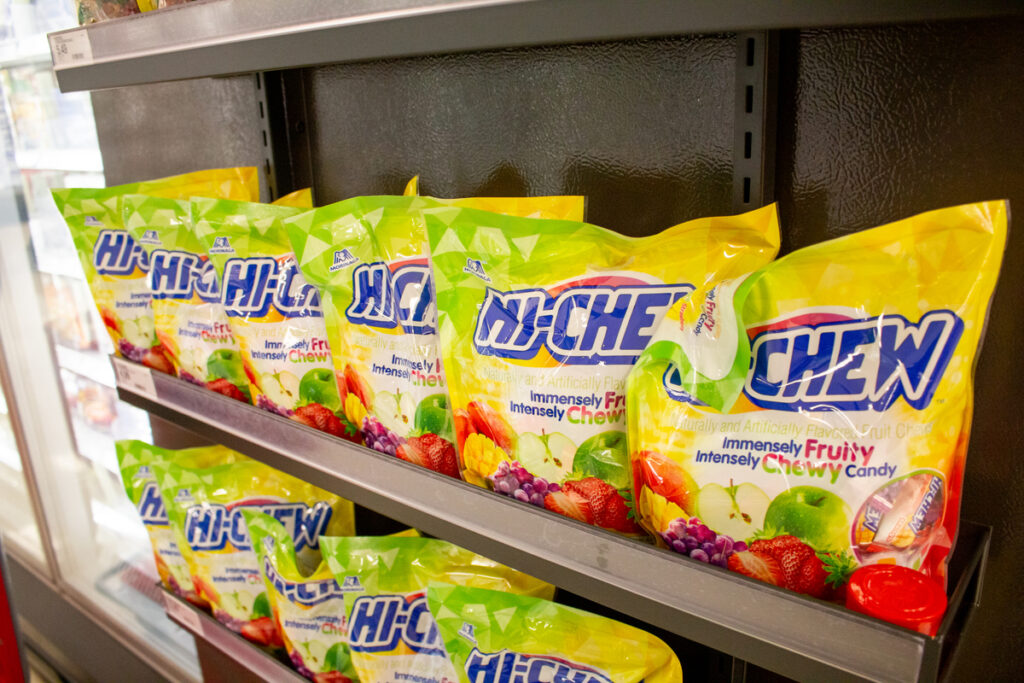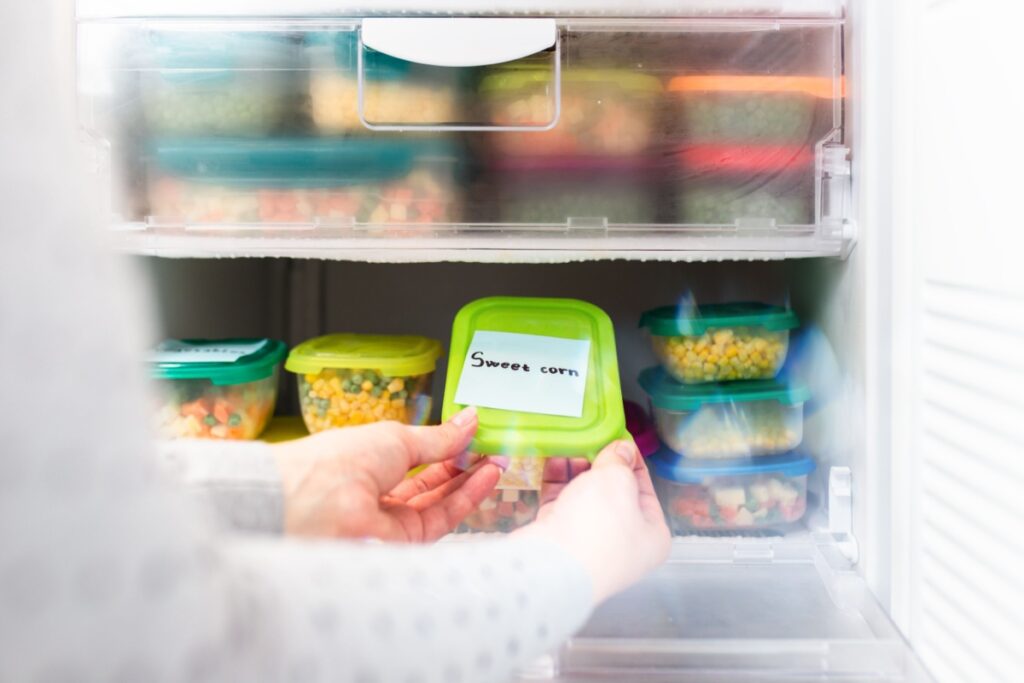15 Ways You’re Wasting Thousands on Groceries Without Realizing It
Groceries are one of the biggest expenses for most households, but many of us don’t realize how much money we waste every year. From poor planning to bad habits, small mistakes add up to thousands of dollars over time. The good news is that with a little awareness and effort, you can stop unnecessary spending and make smarter choices.
Whether it’s buying things you don’t need, letting food go to waste, or falling for marketing tricks, these common habits might be draining your wallet. Identifying these mistakes is the first step to saving money on groceries. Let’s look at 15 ways you might be overspending and how to fix them.
Shopping Without a List

Heading to the grocery store without a list can lead to impulse buys and forgotten essentials. Without a plan, you’re more likely to grab things you don’t need or buy duplicates of items you already have. This disorganization often results in overspending and wasted food at home.
A simple shopping list helps you stay focused and ensures you only buy what’s necessary. You can also use it to plan meals, which reduces waste and saves money. Taking just a few minutes to write down what you need can make a big difference in your grocery budget.
Buying Too Much Fresh Produce

Fresh fruits and vegetables are healthy, but buying too much at once can lead to waste. Produce often spoils before you have a chance to use it all, especially if you don’t have a plan for how to incorporate it into meals. Overestimating how much you’ll eat in a week is a common mistake.
Instead, buy smaller quantities and visit the store more often if needed. Consider frozen or canned options, which last longer and are just as nutritious. By managing your produce purchases better, you’ll waste less and save more.
Falling for Sales You Don’t Need

It’s easy to get excited about sales, but buying items just because they’re discounted can cost you more in the long run. If the item isn’t something you usually buy or can’t use before it expires, it’s not a deal—it’s waste. Bulk discounts can also be misleading if the extra items end up going bad.
Stick to buying things you know you’ll use, and avoid the temptation to stock up on unnecessary items. Tracking your spending can help you see if sales are actually saving you money or just adding clutter to your pantry.
Ignoring Expiration Dates

Ignoring expiration dates when shopping or organizing your pantry can lead to food waste and unnecessary spending. Buying items close to their expiration date without a plan to use them soon is a common mistake. At home, foods pushed to the back of the fridge or pantry often go bad before you remember to use them.
Regularly checking and organizing your food storage can help you avoid wasting money on expired products. Make it a habit to rotate items so older foods are used first. Being mindful of expiration dates can prevent waste and save you money.
Buying Pre-Packaged Convenience Foods

Pre-packaged meals and snacks may save time, but they often cost significantly more than making the same thing yourself. Single-serving packages, pre-cut fruits, and pre-made salads are marked up for convenience. While they might seem like a good idea, the cost adds up quickly.
Taking a few extra minutes to prepare your own meals or snacks at home can save hundreds of dollars a year. Invest in reusable containers to portion out your own snacks instead of buying individually wrapped items. Small changes like these can make a big impact on your grocery bill.
Throwing Out Leftovers

Leftovers are an easy way to save money, but many people end up tossing them out. Forgetting to eat leftovers or storing them improperly leads to wasted food and wasted money. Instead, plan meals that use leftovers creatively, like turning roasted chicken into sandwiches or soups.
Labeling containers with dates can help you keep track of what needs to be eaten first. Investing in quality storage containers can also keep leftovers fresher for longer. By making an effort to use leftovers, you can reduce food waste and stretch your grocery budget.
Overbuying in Bulk

Buying in bulk can save money, but only if you actually use the items before they go bad. Many people buy too much, especially with perishable goods, and end up throwing things away. Even non-perishable items can take up valuable storage space and lead to overspending.
Before buying in bulk, consider how much your household will realistically use. If an item is something you rarely use, buying in bulk may not be the best choice. Smart bulk shopping means sticking to staples you know you’ll finish.
Forgetting to Meal Plan

Without a meal plan, it’s easy to buy items that don’t fit together or overbuy ingredients you won’t use. A lack of planning often results in last-minute takeout, which adds to your food expenses. Meal planning helps you focus on what you actually need, reducing waste and saving money.
Start by planning meals for the week and making a shopping list based on your plan. Incorporate ingredients you already have at home to avoid duplicates. Meal planning doesn’t have to be complicated, but it’s one of the best ways to cut down on grocery costs.
Overlooking Store Brands

Name-brand products are often more expensive than store-brand alternatives, even though the quality is usually the same. Many people stick to name brands out of habit, but this can add up to hundreds of dollars a year.
Store brands are often made by the same manufacturers and offer similar taste and quality at a lower price. Compare labels to see if there’s a noticeable difference before deciding. Switching to store brands for staples like cereal, pasta, and canned goods can save a surprising amount over time.
Grocery Shopping When Hungry

Shopping on an empty stomach is a recipe for overspending. Hunger makes everything look delicious, and you’re more likely to buy things you don’t need. Impulse buys can quickly add up, leaving you with a bigger bill and more unnecessary items.
Eat a snack or meal before heading to the store to avoid this trap. Having a list and sticking to it can also help keep your spending in check. By shopping with a clear mind and a full stomach, you’ll make smarter choices.
Ignoring Weekly Flyers and Coupons

Skipping out on flyers and coupons means missing easy savings. Many stores offer discounts on popular items, but you won’t know unless you check. Coupons, whether digital or paper, can add up to significant savings over time.
Make it a habit to browse weekly deals before making your shopping list. Apps and store loyalty programs also make it easier to save on your regular purchases. Taking a few minutes to find deals can reduce your grocery bill without much effort.
Buying Too Many Snacks and Sweets

Snacks and sweets are tempting, but they’re often overpriced and add little nutritional value. Stocking up on chips, candy, and cookies can eat into your budget while crowding out more important items.
Limiting how many snack foods you buy each trip can help control costs. Look for healthier, more affordable alternatives like popcorn or homemade treats. By reducing impulse buys in the snack aisle, you’ll save money and make healthier choices.
Paying for Bottled Water

Bottled water is a convenient but costly habit that can easily be avoided. The markup on bottled water is enormous, especially compared to the cost of tap water or filtered water at home.
Investing in a reusable water bottle and a quality filter can save you hundreds of dollars a year. Many people buy bottled water out of habit, but the savings from cutting it out are significant. It’s better for your wallet and the environment.
Overlooking Your Freezer

Failing to use your freezer efficiently can lead to wasted food and money. Freezing leftovers, bulk buys, and perishable items extends their shelf life and prevents spoilage. Many people forget what’s in their freezer, letting items go to waste.
Keep an inventory of frozen foods and plan meals around what you already have. Using your freezer wisely can reduce food waste and help you make the most of your groceries.
Not Comparing Prices

Shopping at the same store without comparing prices at other places can cost you money. Some stores charge more for the same products, especially specialty items. Take the time to compare prices at nearby grocery stores or online. Apps and websites can also help you find the best deals in your area. By shopping smarter, you can save money without sacrificing quality.
20 Foods No One Can Afford Anymore Due To Inflation

With the ever-rising living costs, some foods have become luxury items that only the wealthiest can afford. From exotic delicacies to once-affordable staples, the price hikes have made certain foods out of reach for the average consumer.
20 Foods No One Can Afford Anymore Due To Inflation
15 Ways to Shop Successfully On A Shoestring String Budget

In today’s economy, finding ways to stretch your budget while enjoying what you love is more important than ever. Whether you’re a savvy shopper looking to make the most of your hard-earned money or someone who enjoys the thrill of finding a great deal.







